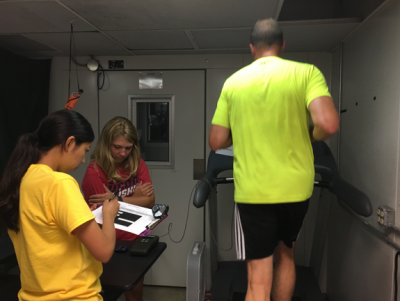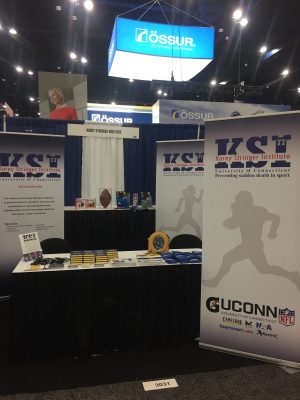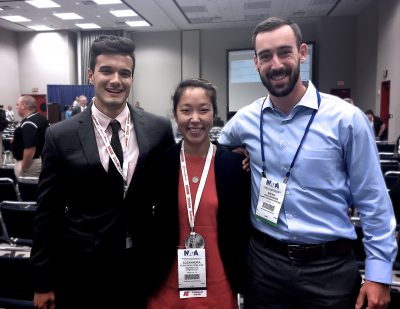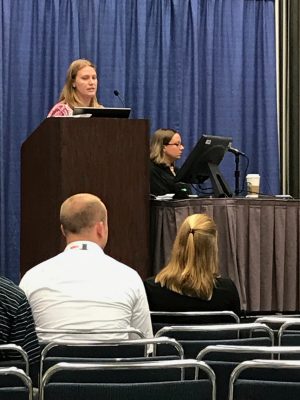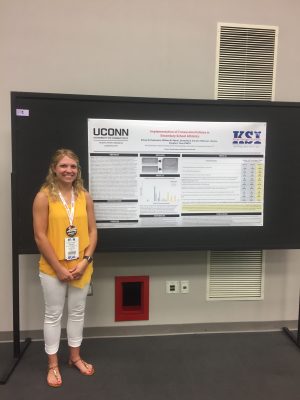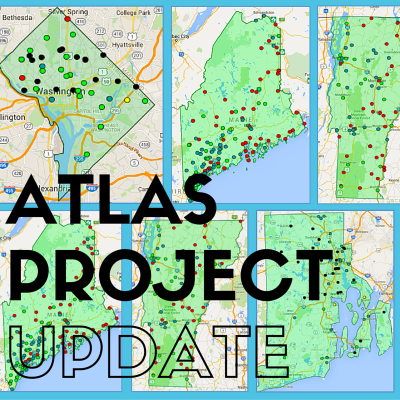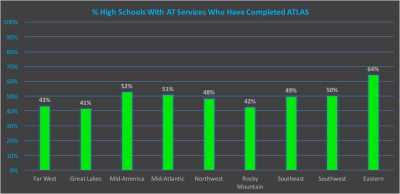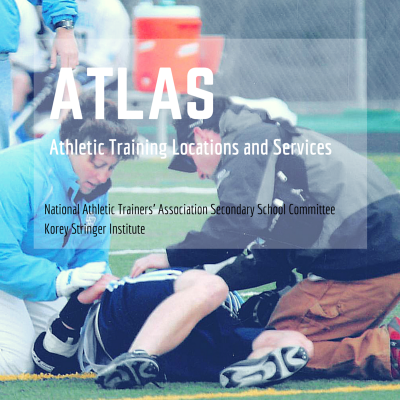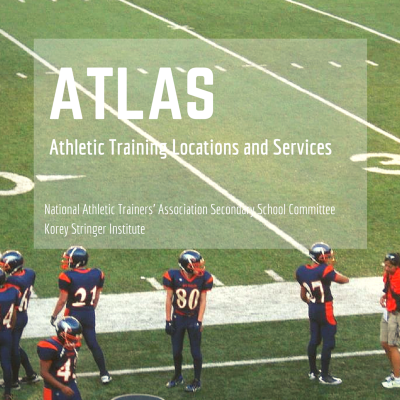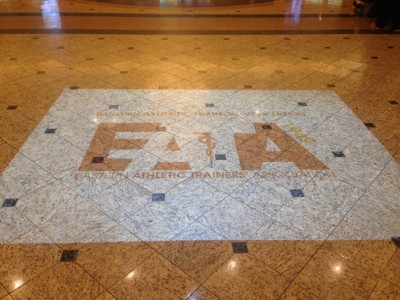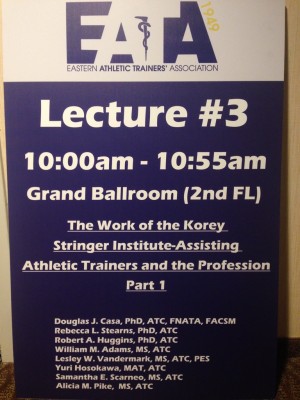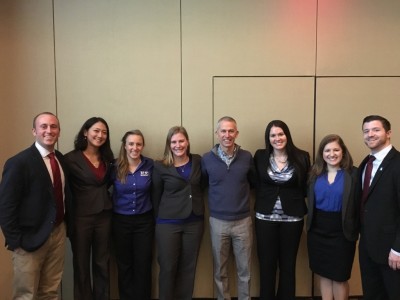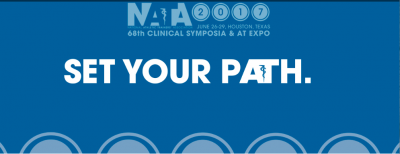 (May 14th, 2018) — The Korey Stringer Institute (KSI) is proud to honor three individuals for theiroutstanding contributions to preventing sudden death in sport through the KSI’s 2018 lifesaving awards.The awards were presented at NFL headquarters in New York City, NY during the KSI’s annualfundraising gala on May 10, 2018.
(May 14th, 2018) — The Korey Stringer Institute (KSI) is proud to honor three individuals for theiroutstanding contributions to preventing sudden death in sport through the KSI’s 2018 lifesaving awards.The awards were presented at NFL headquarters in New York City, NY during the KSI’s annualfundraising gala on May 10, 2018.
Located at the University of Connecticut, the Korey Stringer Institute is a national research and advocacy organization dedicated to maximizing performance, optimizing safety, and preventing sudden death among athletes, warfighters, and laborers.
The 2018 award recipients are:
 KSI Lifesaving Research Award
KSI Lifesaving Research Award
This award recognizes exceptional dedication and work in research aimed to advance knowledge regarding the prevention of sudden death in sport.
Scott Anderson, ATC
Head Athletic Trainer University of Oklahoma
The head athletic trainer for the University of Oklahoma since 1996, Scott Anderson is currently president of the College Athletic Trainers’ Society and the Big 12 Conference representative to the NCAA Concussion Safety Committee. He is former co-director of the Summit on Safety in College Football (2014, 2016). His prior service includes
membership on the NCAA Concussion Task Force (2014) and the Inter-Association Task Force on Safety in Football: Off-Season Conditioning (2012). He was co-chair of the National Athletic Trainers’Association Inter-Association Task Force on Sickle Cell Trait in Athletes (2007) and a member of the Inter-Association Task Force on Exertional Heat Illness (2003). He served as chair of the Big 12 Conference Medical Aspects of Sport Committee from 1999 to 2002.
Recognitions: College/University – Athletic Trainer of the Year 2006; All-American Football Foundation, Inc – Outstanding Athletic Trainer 2005; and 2000-01 Big 12 Conference Athletic Training Staff of the Year, and Oklahoma Athletic Trainers Association Hall of Fame.
 KSI Lifesaving Service Award
KSI Lifesaving Service Award
This award recognizes exceptional service aimed to improve policies and advocate for the adoption of policies in order to reduce sudden death in sport.
Larry Cooper, MS, LAT, ATC
Teacher & Athletic Trainer Penn-Trafford High School
Larry Cooper has been a tireless advocate for secondary school athletic trainers.
He has been involved locally, regionally, and nationally on various committees, projects, and several inter-association task forces. Recently, he served as the NATA Secondary School Athletic Trainers Committee (SSATC) Chair and also the District 2 SSATC Representative. Cooper has been a teacher and certified athletic trainer for 35 years. For the last 27 years, he has served as a sports medicine, health, and physical education instructor at Penn-Trafford High School in Harrison City, Pennsylvania. Cooper has also served as a member of the National Federation of State High School Associations (NFHS) Sports Medicine Advisory Committee. In addition, he has held numerous positions within the Pennsylvania Athletic Trainers Society (PATS) including being a member of the Board of Directors and Secondary School Committee Chair. Cooper is a founding member of the Western Pennsylvania Interscholastic Athletic Leagues (WPIAL) Sports Medicine Advisory Committee. He continues to work as a master assessor for the Pennsylvania Interscholastic Athletic Association’s (PIAA) Wrestling Weight Loss rule. Cooper has been an active member in the KSI’s ATLAS Projectsince its inception. This collaborative effort between the NATA and KSI has led to new policies and policy changes that have increased secondary school athlete safety across the country.
Cooper was inducted into the Pennsylvania Athletic Trainer Hall of Fame in 2014. He received the NATA Athletic Trainer Service Award in 2014 and the NATA Most Distinguished Athletic Trainer Award in 2016. In addition, he received the School Health/ Training and Conditioning Magazine Most Valuable Athletic Trainer Award in 2015; The Micro Bio-Medics Scholastic Athletic Trainer Award in 2003; the PATS Service Award in 2005; and the PATS Distinguished Merit Award in 2011.
His favorite role has been that as loving husband to Lisa and father to their three daughters, Sara, Molly, and Delaney.
 KSI Lifesaving Education Award
KSI Lifesaving Education Award
This award recognizes exceptional work to advance knowledge and education in the realm of preventing sudden death in sport.
Cindy Chang, MD
Professor, Primary Care Sports Medicine University of California San Francisco
Dr. Cindy Chang is a primary care sports medicine physician specializing in the prevention, diagnosis, and treatment of injuries and illnesses related to exercise and sports participation in children and adults.
She serves as chair of the California Interscholastic Federation’s SportsMedicine Advisory Committee, and also served on the Sports Medicine Advisory Committee for the National Federation of State High School Associations (NFHS). She is a board member of Racing Hearts, a non-profit organization that increases awareness of and improves access to automated external defibrillators (AEDs) in communities. After co-founding the California Concussion Coalition, Dr. Chang is now co-chair of the Sports Concussion Program at UCSF Benioff Children’s Hospital. She was an elected four-year member of the Board of Directors for the American Medical Society for Sports Medicine (AMSSM), one the largest organizations of primary care sports medicine physicians in the world, and later served as its President in 2011-2012. She is also a fellow of the American College of Sports Medicine (ACSM) and is currently an elected member of its Board of Trustees.
Dr. Chang has worked at the U.S. Olympic Training Center in Colorado Springs and was part of the USA medical team for the Winter Paralympic Games in Nagano, Japan, in 1998 and in Salt Lake City in 2002. She served as Chief Medical Officer for the USA delegation at the 2007 Parapan American Games in Rio de Janeiro, the 2008 Summer Paralympic Games in Beijing, and the 2012 Olympic Games in London.
She was the 2003 recipient of the AMSSM Founders Award, given to a sports medicine physician who demonstrates outstanding professional achievement and service to the community. She was also selected to receive the 2013 Dr. Ernst Jokl Sports Medicine Award, given annually to an individual for his/her contributions to the growth and development of sport medicine through practice and/or scholarly activity. In 2016, Dr. Chang was honored with the National Athletic Trainers’Association Jack Weakley Award of Distinction, for a lifetime of outstanding contributions that directly impact health care in the area of athletics, athletic training, or sports medicine and are of major and lasting importance.
Dr. Chang is currently a Clinical Professor at the University of California San Francisco in the Departments of Orthopaedics and Family & Community Medicine. She continues at Cal as a team physician and sports medicine consultant, and volunteers as the team physician at Berkeley High School. She is very invested in supporting her athletic trainer colleagues and advocating for their licensure inCalifornia. Chang is medical director of Emergency Education Services at UCSF Benioff Children’sHospital, and has become credentialed to train others including athletic trainers to become certified instructors in First Aid and CPR/AED. She frequently speaks to community groups, schools, club teams, and the media on a wide range of topics affecting the health and safety of our young athletes.
 , working either full or part time and providing care for the student-athletes during treatments and rehabilitation programs, practices and game competition.
, working either full or part time and providing care for the student-athletes during treatments and rehabilitation programs, practices and game competition.
